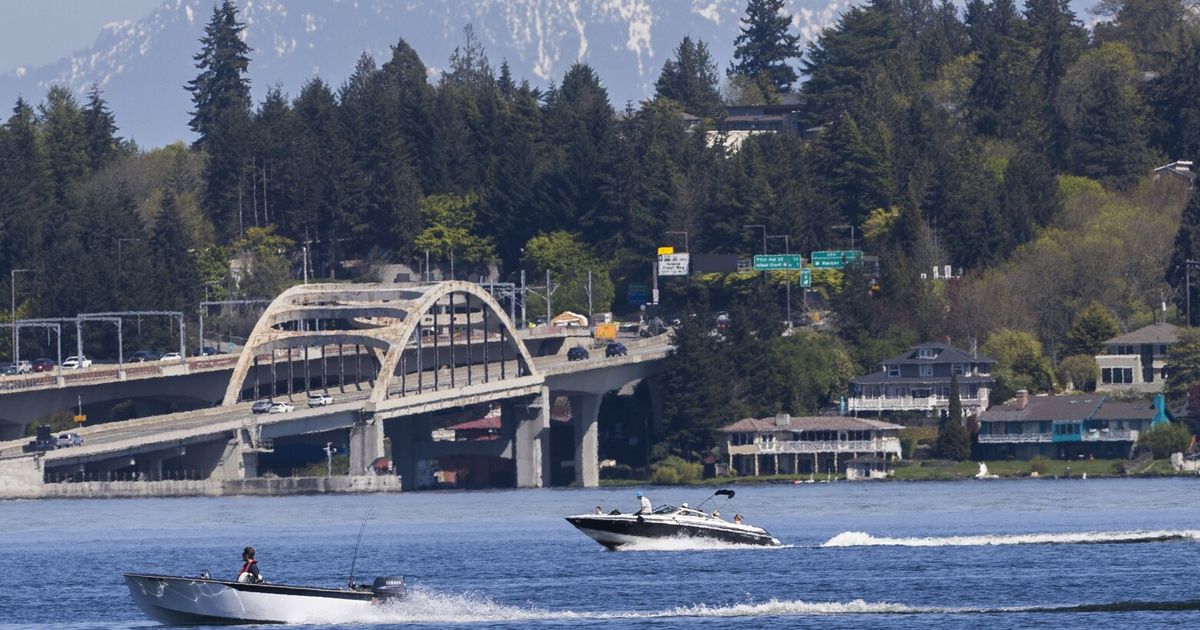WA’s wealthiest are richer than even the tax collectors guessed

A few years ago, state legislators in Washington set about in earnest trying to tax the rich. But first, they had to measure them.
A slate of bills seeking to tap into the gushers of new wealth in the state set off a curious side exercise. Just how rich are the unfathomably rich in this state? How many are out there?
Everybody knows about the uber billionaires — the Gates, Bezos and Ballmer types. But what about the next notch down — the one-tenth percenters, who maybe are little known but still are richer than 99.9% of the rest of us?
Some bills were introduced in 2021 to tax overall wealth, starting at the round figure of $1 billion and up. That didn’t go far, but it made waves when fiscal analysts estimated it could affect nearly 100 people in the state.
Forbes magazine’s list of the nation’s wealthiest people identifies between 12 and 16 known Washington billionaires. (It fluctuates, sometimes daily.) But state tax estimators, using proprietary IRS data, were saying that we’re actually home to six or seven times that many. The billionaire next door? If true, then they’re hiding in plain sight.
This year, legislators proposed taxing wealth of more than $250 million. That bill didn’t pass either, but fiscal estimators again caused a buzz by saying there were 700 such “quarter-billionaires” in the Evergreen State.
It’s all been shades of informed guesswork, though, with the levels of wealth in the state effectively unknowable. Until now.
This spring, after decades of discussion, the state finally imposed its first wealth-related levy. The capital gains tax, passed in 2021 and upheld by the state Supreme Court in March, taxes not extreme wealth but the machinations of it — the selling of assets, mostly stocks, in amounts that lead to profits of more than $250,000 in a year.
Estimators modeled that Washington has about 7,000 people who live in this rarefied financial air. These one-tenth percenters would book roughly $8 billion in capital gains, mostly in stock options or returns from investment funds (real estate sales are not taxed). The 7% capital gains tax would then raise $440 million in 2023, to be used for schools.
What ended up happening blew the models out of the water.
According to the state, 3,190 people have paid a total so far of $849 million — nearly twice what was expected. That reflects about $13 billion in underlying capital gains booked by these 3,000-plus people in 2022. That’s fewer people than expected. But they turned out to be far richer.
“It gives an inkling of how much extraordinary wealth there is in our community,” said Andy Nicholas, a tax specialist for the Washington State Budget and Policy Center, a group that advocated for the capital gains tax. “It shows how wealth and stock profits are concentrated at very high levels in the Seattle area.”
It’s interesting because as recently as last month, critics of the new tax were saying it would be a dud.
“Many people and employers subject to the tax can simply avoid paying it by not selling their assets,” said state Rep. Mark Klicker, R-Walla Walla, in April. “That means the tax won’t raise its projected revenue and it will discourage investment in our state. It will also hurt the state’s child care and early learning programs that are supposed to be funded by the additional revenue.”
The opposite happened. So much more money is coming in that the state’s school construction fund is likely to get an unexpected gusher of $350 million, or maybe more. (The final figures will change, as several thousand taxpayers have requested extensions.)
“You will definitely see new schools built because of this,” Nicholas said.
Maybe this is the meal ticket for Wahkiakum, and other rural districts, to finally get their crumbling schools fixed after all?
State economic forecasters downplayed the tax in March, predicting it might bring in only $248 million. The $849 million return is more than triple that. It’s also 50% more than analysts initially forecast would be raised at any time over the next five years.
You know who was right about all this? The resident billionaire whisperer, Nick Hanauer.
Hanauer, a venture capitalist who struck gold as an early investor in Amazon, has been arguing for years that Seattle’s tech plutocrats are fantastically wealthier than your mind can even comprehend. In classic Seattle style they may quietly blend in. But they’re so rich they’ll scarcely notice a capital-gains tax, Hanauer argued.
“If I have a $1 million windfall in stock profits, I’ll owe the state $52,500 — a pretty measly sum to superrich folks like us,” he said in March.
“To imply that anyone other than a small handful of me and my super-wealthy friends would pay this is a disingenuous scare tactic,” he said, back when some tech leaders were contending the tax might cut a wide swath.
In 2021, lawmakers were told the tax could start a wealth stampede out of state. He said this: “I promise you, a 7 percent tax on capital-gains profits exceeding $250,000 a year isn’t worth uprooting our lives and moving to Wyoming or South Dakota.
“To be clear, a couple of sociopaths might pick up and move. … But we rich people will still have more money than we know what to do with.”
Maybe it took one of their own to truly fathom Washington’s rich? The rest of us are only learning how different they really are from you and me.
